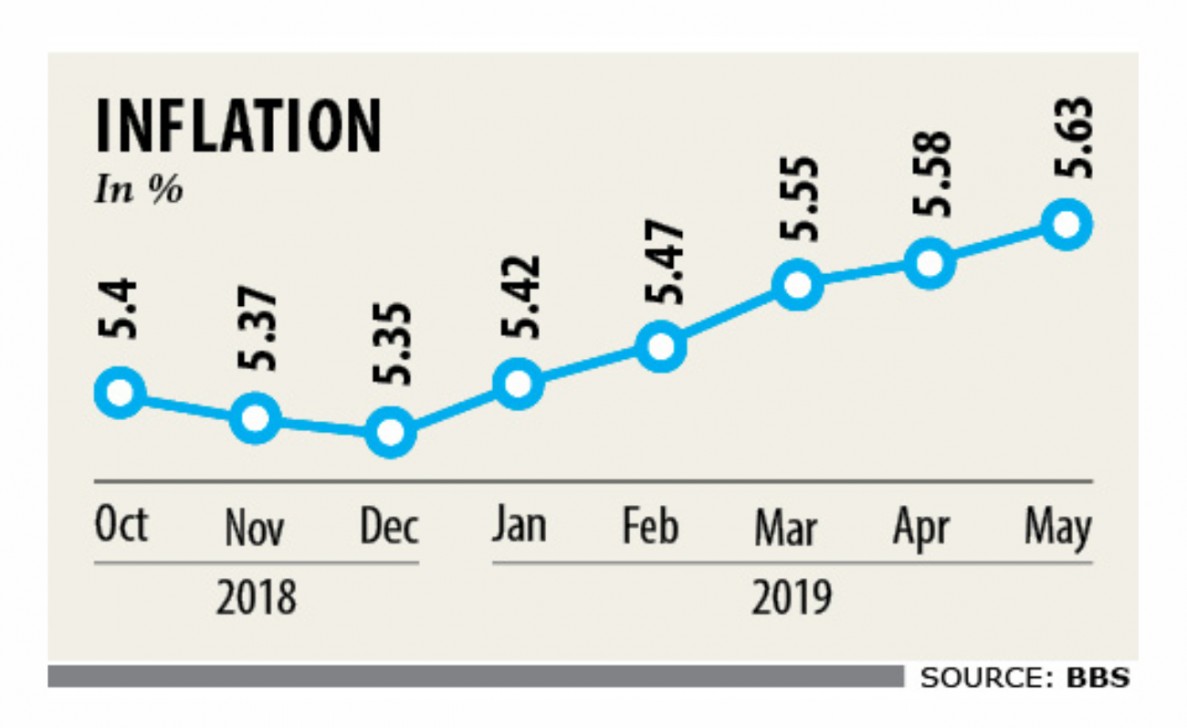Inflation hits 13-month high

Inflation hit a 13-month high in May thanks to a sharp increase in prices of non-food items on the occasion of Ramadan, which typically sees a spike in consumption.
Last month, inflation stood at 5.63 percent after advancing five basis points from April, according to data from the Bangladesh Bureau of Statistics (BBS), which was unveiled yesterday by Planning Minister MA Mannan. It was six basis points higher than a year earlier.
Non-food inflation stood at 5.84 percent, up 20 basis points from the previous month, while food inflation declined five basis points to 5.49 percent.
Prices of clothes and furniture as well as the cost of health services and transport went up in May, said the BBS in a statement.
This year non-food prices seem to have been affected more than food prices, particularly in urban areas, said Zahid Hussain, lead economist of the World Bank’s Dhaka office.
This may be because the price of rice, the biggest item in the food consumption basket, has been declining of late, he said.
However, food inflation in rural areas in May was almost the same as in April and marginally higher than May last year.
“This means the decline in prices of paddy in rural areas did not trickle down as much to rice prices in rural areas, but rice prices probably fell much more in urban areas.”
Rice prices in rural areas generally tend to be lower than in urban areas. Bumper paddy harvests may have induced sellers to shift rice supply to urban markets for a better price, leading to proportionately larger fall of rice prices in urban areas.
Inflation has been on a downward trajectory since fiscal 2013-14. Starting with 7.35 percent, it fell to 5.44 percent in fiscal 2016-17 but slightly increased to 5.78 percent the following year.
Satisfactory domestic production, favourable environment, low budget deficit and prudent monetary policy coupled with low fuel and commodity prices in the international markets contributed to the slide in overall inflation, according to government documents.
It has averaged 5.47 percent in the first 11 months of the fiscal year.
The government has targeted to keep inflation within 5.6 percent in fiscal 2018-19 and 5.5 percent in the next fiscal year.
“Inflation has been kept at a tolerable level despite the sustained high growth rates in our economy,” said Finance Minister AHM Mustafa Kamal in his budget speech last week. In the last one decade, the highest inflation was recorded in fiscal 2010-11 at 10.91 percent and the lowest in fiscal 2016-17 at 5.44 percent.
